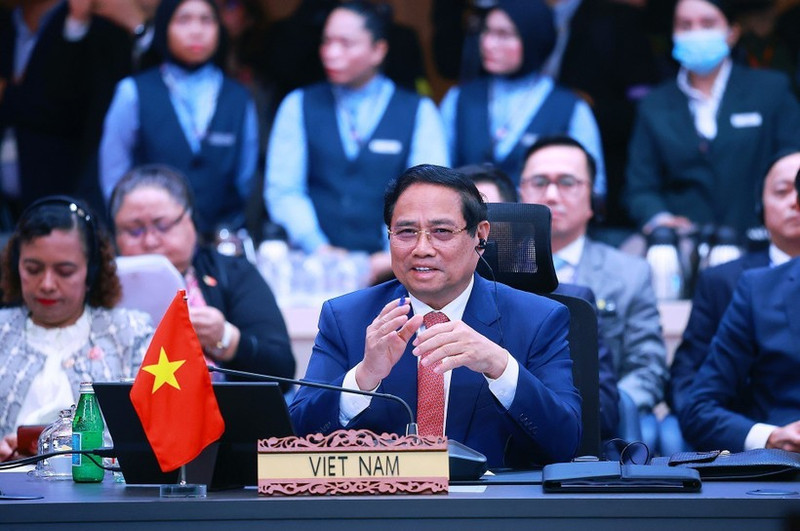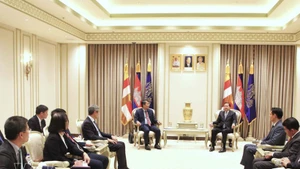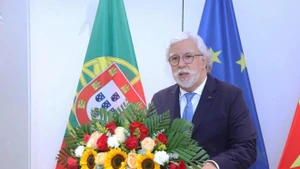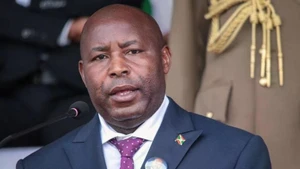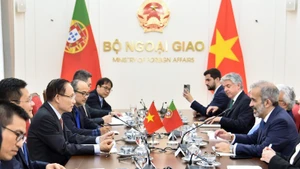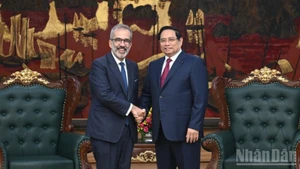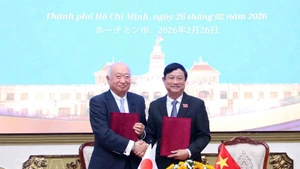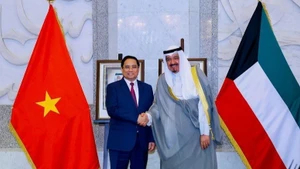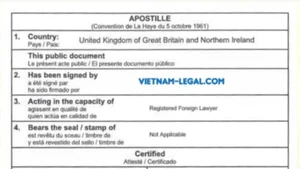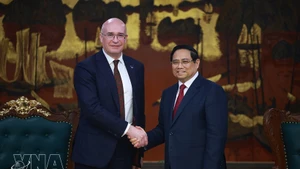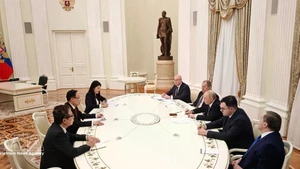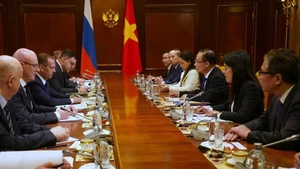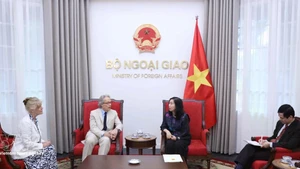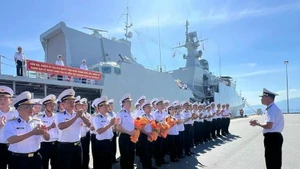Before the summit, the leaders witnessed the signing of the ASEAN–China Free Trade Area (ACFTA) 3.0 Upgrade Protocol.
In his addresss, PM Chinh congratulated China on the 80th anniversary of its victory over fascism, calling it a historical milestone that reminds all nations of the horrors of war and the value of lasting peace.
Stressing that solidarity breeds strength and cooperation delivers mutual gains, he proposed three strategic orientations to further advance ASEAN - China relations in the years ahead.
First, he called for “smart, inclusive and sustainable connectivity”. This includes the effective rollout of ACFTA 3.0 and the joint development of modern, green infrastructure linking ASEAN and China, focusing on high-speed rail networks, green ports, energy-efficient airports, and expanded smart border crossings. The PM also pushed for digitalisation of logistics and immigration to facilitate trade and people-to-people exchanges, greater integration among smart urban areas, sharing of digital governance and artificial intelligence (AI) management tools, and renewable energy solutions for urban planning.
Second, he underscored the need to increase innovation as a driver of breakthrough growth and backed an ASEAN–China Plan of Action on Science, Technology and Innovation for 2026–2030. Proposals included a regional innovation network, joint research institutes and laboratories, an annual forum on green technology and digital transformation, plus deeper cooperation in tech talent training, people-to-people and youth exchanges, and cultural tourism.
Third, he affirmed that building strategic trust and maintaining regional peace and stability are prerequisites for sustainable and inclusive development.
ASEAN and China need to turn the East Sea/ South China Sea into waters of peace, stability, cooperation and development, by fully and effectively implementing the Declaration on the Conduct of Parties in the East Sea/ South China Sea (DOC) and working toward an effective and substantive Code of Conduct in the East Sea/ South China Sea (COC) in line with international law, including the 1982 UN Convention on the Law of the Sea (UNCLOS), he said.
The participating leaders described the ASEAN–China Comprehensive Strategic Partnership as a key pillar supporting regional peace and stability and one of ASEAN’s most dynamic and wide-ranging relationships.
The two remain each other’s leading trade partners, with two-way trade reaching 772.4 billion USD and Chinese foreign direct investment (FDI) into ASEAN totaling 19.3 billion USD in 2024. Both sides affirmed their determination to further deepen ties and agreed to designate 2026 as the “ASEAN–China Year” to mark their Comprehensive Strategic Partnership’ fifth anniversary with a series of celebratory events.
They stressed the need to promote deeper economic integration and maintain their role as growth engines in the Asia-Pacific, including the early ratification and effective implementation of ACFTA 3.0, paving the way for quality trade, investment, industrial and supply chain connectivity.

The summit praised the progress of the 2021–2025 Action Plan and called for early launch of the 2026–2030 plan. Delegates vowed to accelerate emerging growth drivers, including digital transformation, innovation, science and technology, energy transition, green economy, and support for startup ecosystems. Strengthening infrastructure, institutional and enterprise linkages, and people-to-people exchanges was also highlighted.
The event reaffirmed the importance of multilateralism in maintaining a peaceful, secure and stable environment. The leaders stressed that ASEAN and China share common interests and responsibilities to keep the East Sea/ South China Sea peaceful, stable and conducive to cooperation and development.
They promised to promote dialogue, build trust, settle differences and disputes peacefully in accordance with international law and UNCLOS 1982. Both sides reiterated the need for the full and effective implementation of the DOC and accelerated efforts to finalise an effective, substantive COC in line with international law.
In his address, Premier Li called for bolstering mutual strategic trust and advancing areas of win-win cooperation. Li proposed an ASEAN - China Digital Academy and greater people-to-people connectivity to deepen mutual understanding and friendship.
